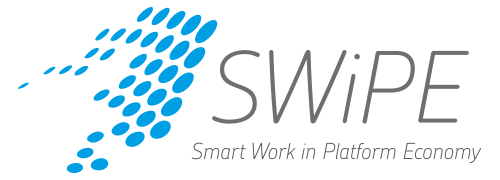
In the research project funded by the Finnish Work Environment Fund, we studied the working times of expert work and their link with work and well-being. Please review the project report (in Finnish) by clicking here. In short, we invited the members of Finnish Business School Graduates and employees of one IT company to participate the survey. The majority of the participants were currently in a permanent employment relationship and only 3% (i.e. 9 people from all 307 respondents) worked outside the private, public, governmental or organizational sectors. A very traditional set of clerical personnel. On the other hand, our results from the relationship between long hours of work and sleep and alertness are important irrespective of the form of employment and they refer to those working on platforms or as entrepreneur.
Expert work in the centre
We set the expert work in the centre, because in the traditional employments it also offers flexibility for the employee, when the work can be done with the help of modern technologies also else where. It is known that flexibility can lead to blur of the boundaries between work and leisure-time and to long working hours. The boundary between work and leisure is important for recovery and rest. On the other hand, expert work has become more widespread because of digitalisation, and the workers on platforms are their own special group among these experts.
New technologies blur the boundaries of work and leisure-time
For one tool for the research we chose a downloadable mobile application. One reason for this was the possibility to reach the members of the union regardless of their work, but the idea was also to identify their own use of time. The majority experienced that their work require a continuous availability and more than half attempted to react immediately to e-mails. On the other hand, the use of the smartphone was connected to longer working hours and to poorer well-being. When this was observed in traditional employments, it is reasonable to evaluate the situation to be at least the same among entrepreneurs or the employees working on platforms, whose income is more directly dependent on contacts and orders.
It is important to recover on platforms, too
The second observation made on the platform work and entrepreneurs was the vicious circle between sleep and recovery and the length of working hours: the lower sleep quality of the previous night or the weaker alertness in the morning extended the working time of the next day. Correspondingly, longer working hours were connected to the weaker quality of sleep and alertness on the next morning.Our view is that this underlines the importance of boundary between work and leisure-time. Particular attention will certainly be paid to workers– both in employments, platform workers and entrepreneurs– who work overtime zones, travel a lot or for whom accessibility is important.
Mutual agreement on good practices
What could be done to the boundary between work and the leisure-time? For a start: not leaving employees alone. Secondly, there is a need for support and training for time management as part of work communities’ activities and managerial work, and especially as customised for platform workers and entrepreneurs. We also encourage to mutually agree on common practices in relation to the availability, the urgency of tasks and the appropriateness of the use of time. The employees can agree on a period of time when quicker and intense availability is needed to achieve common objectives, followed by a lighter period. For platform workers and entrepreneurs, a solution can be found in answering automation or in dividing work so that there is also time to rest.
In addition, we encourage to nurture interactive work culture and agreeing on good practices in order to compensate the long working hours, for example, the burden of commuting. In the case of recovery and rest, the relationship between working time and quality of sleep is central. If you make a long day, it can be hard to get enough and good sleep. It is important for all aspects of the functional capacity(physical,mental,cognitive) to map out work so that there is enough leisure-time in the evenings and time to calm down before going to sleep and have enough time to sleep. One solution can be to keep track of the use of time using an app, because it allows you to detect the boundary between work and leisure-time.
Reference:
Ropponen, A., Bergbom, B., Härmä, M., Sallinen, M. (2018): Asiantuntijatyön työajat : yhteydet työhön ja hyvinvointiin. Työterveyslaitos, Helsinki.
Annina Ropponen is senior researcher in SWiPE-consortium as well as in Finnish Institute of Occupational Health.
Translation by Marja Rautajoki.
